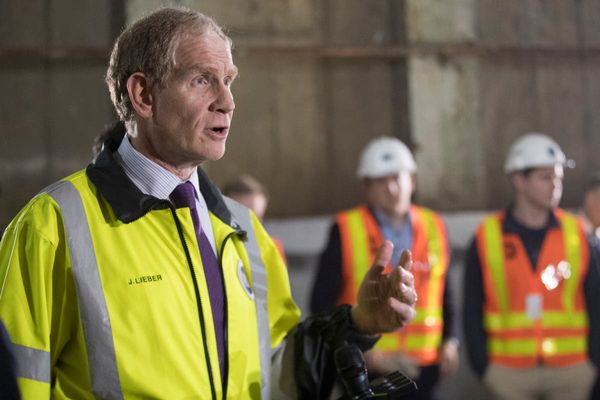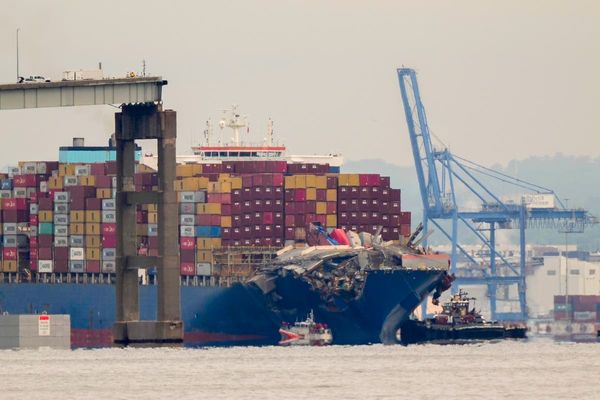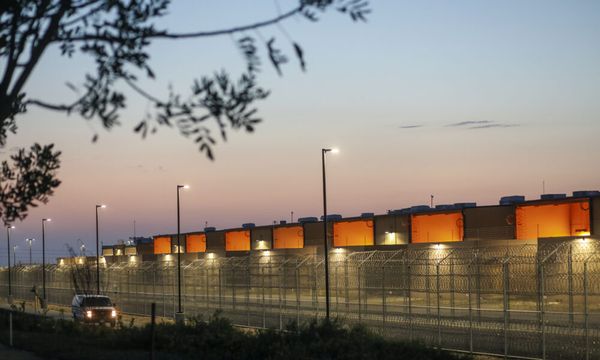
The Middle East “is on the verge of the abyss”. That was the stark warning issued last week by António Guterres, the UN secretary general, as he assessed the violent ramifications of the Hamas terrorist attack that killed more than 1,400 Israelis two weeks ago. Like numerous diplomats and politicians in the Arab world, Europe and the US, Guterres is working frantically to prevent the fire lit on 7 October from spreading beyond the besieged Palestinian enclave of Gaza, where Hamas is based, to the wider region.
The success of these efforts hangs in the balance. The release of two Americans among the roughly 200 people taken hostage by Hamas is the first good news to emerge since the crisis erupted. Behind-the-scenes mediation led by Qatar to free those still held captive is continuing. But this success has not halted Israel’s round-the-clock bombardment of Gaza. It’s plain the remaining hostages’ fate is inextricably linked to other issues, principally a predicted, large-scale Israeli ground offensive.
A silent tug of war appears to be under way between European governments and the Biden administration on the one hand, and Israel on the other, over the timing and possibly scope of this offensive. Prime minister Benjamin Netanyahu and his war cabinet, vowing to “fight to victory”, have assembled a huge military force around Gaza’s periphery. Defence minister Yoav Gallant told impatient troops they would soon be able to view Gaza “from the inside”. Polls suggest strong public support for an invasion.
Israel’s allies fully accept it has the right to take action. But President Biden wants more time, especially for negotiations to free remaining hostages, several of whom are Americans. During a visit to Tel Aviv last week, Biden pledged unwavering support and offered $14bn in military aid. He also counselled Israelis not to allow themselves to be consumed by rage. He urged Netanyahu to think through his objectives in Gaza, and what Israel’s postwar strategy would be, before committing his forces to a protracted battle with Hamas.
Biden’s firm message of solidarity, coupled with private pressure for restraint and adherence to international law, was reportedly reinforced by Rishi Sunak during his visit to Israel. European and Arab leaders, meeting in Cairo this weekend, hope to gain more breathing space and head off wider escalation. But Israel and Iran, Hamas’s main backer, are boycotting the talks.
The desperate plight of Palestinian civilians in Gaza, cut off by Israel from essential supplies of water, food, medicine and fuel, will surely be made worse by a ground offensive. More than 4,000 Palestinians have died under the bombardment that commenced after 7 October. Thousands more need medical treatment.
That is one reason why last week’s lethal explosion at the al-Ahli hospital caused such fury in Muslim countries already appalled by the enormity of civilian suffering.
The blast was blamed initially on an Israeli airstrike. Subsequent investigations have suggested a misfiring rocket launched by a Palestinian faction was the cause. But the damage was done. A summit meeting between Biden, the Palestinian Authority president, Mahmoud Abbas, and the leaders of Egypt and Jordan was cancelled in the immediate aftermath of the explosion, which helped no one. For outraged Arab opinion, regardless of the facts, the al-Ahli tragedy is now a symbol of Israeli brutality.
What Biden characterised as the main achievement of his visit to Israel – agreement to open the Rafah crossing into Gaza from Egypt – has finally materialised. A small amount of aid is being trucked in this weekend. But as struggling aid agencies justifiably point out, much more assistance is needed on a daily basis for Gaza’s 2.3 million people. “Gaza is being strangled and the world seems to have lost its humanity,” the head of the UN Palestine refugee agency, Philippe Lazzarini, said. Commendably, Guterres, the UN chief, travelled in person to Rafah, where he called for Israel’s blockade to be fully lifted to “ease epic human suffering”.
Guterres is demanding what he terms a “humanitarian ceasefire” – a proposal that embraces key aspects of the conflict. Such a ceasefire, he says, would provide sufficient time to secure the unconditional release of all hostages held in Gaza while allowing unrestricted access for aid supplies. Such a ceasefire might also further delay Israel’s ground invasion. For all three reasons – hostages, aid, de-escalation – such a ceasefire is vitally necessary. The US, Britain, the EU and the Arab states should unite in supporting the UN proposal and persuade Israel and Hamas to agree its immediate implementation.
For what is the alternative? A large-scale invasion now would bring yet more death and destruction to an enclave already battered to its knees. It would imperil the lives of the remaining hostages. It could trigger an unstoppable humanitarian catastrophe. It might provoke a direct intervention by Hezbollah in the north, supported by other Iranian-backed militias in Syria and Iraq. That, in turn, could draw in US forces in the Mediterranean and the Gulf. The wider war so many fear would have arrived.
Israel has the legal and moral right to defend itself. A humanitarian ceasefire would not inhibit that defence. It might even assist it, by helping to channel Israeli efforts into better targeted, more sophisticated military operations and limited, repeated special forces’ ground strikes, as suggested by US analysts. Hamas terrorists who killed innocents in cold blood must certainly be hunted down. They must face justice. For them, there can be no hiding place. But as Antony Blinken, the US secretary of state says, it’s not just what you do that matters, it’s how you do it.







